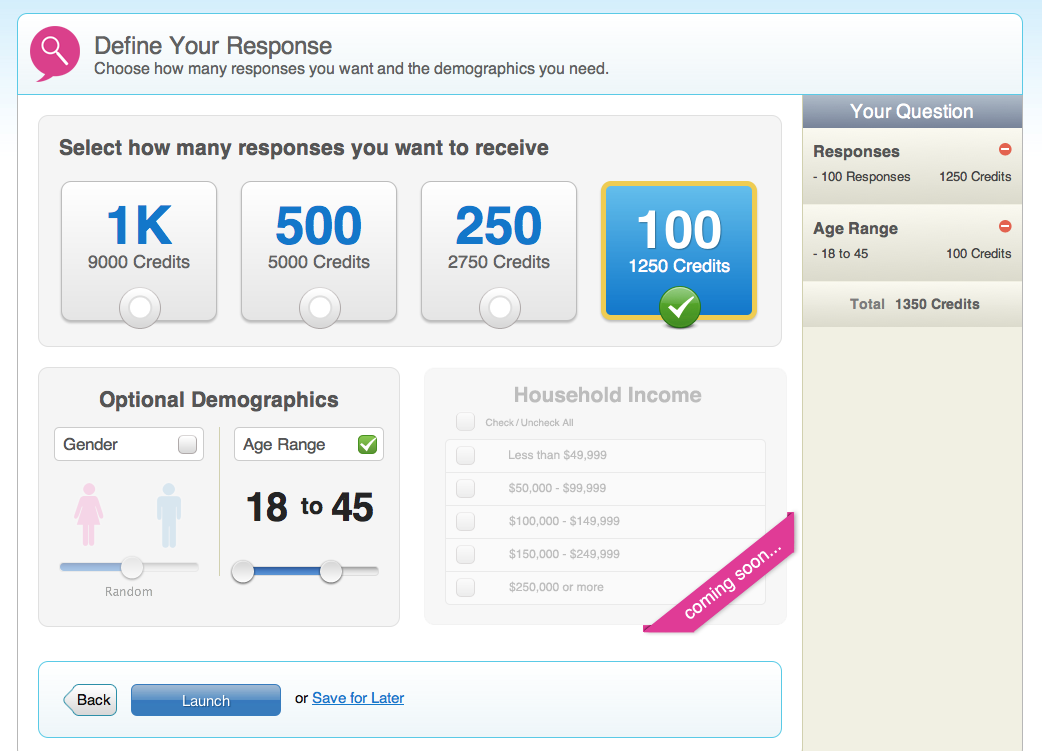Having built a socially-driven market research business on Facebook and across the web, Peanut Labs is launching a new iteration of its crowd-sampling tool today called CrowdVi.be. The goal is to let a brand or anyone else quickly ask questions and get meaningful answers back from random internet users.
Sure, you can use other social media tools, like Twitter and Facebook, to instantly get feedback online. But the difference is that Peanut Labs has some 50 million users on 200 social networks around the world, who take its surveys in order to earn Facebook Credits or other forms of virtual currency in games and apps. In other words, it has a huge, fairly random pool of consumers who are easy to access and hear back from. During its private beta, Crowdvi.be has already been used by companies testing various versions of logos, video trailers, site redesigns, and other tests of words and images.
The new service costs a dollar or less per user, and takes less than a minute to start delivering results. Surveys are priced in a way that’ll be quite familiar to anyone who uses modern social networks — there’s a virtual currency called “Credits,” with 10 Credits costing a buck, that you spend to run your surveys. Each one requires a minimum of 100 users, with prices starting high for smaller ones and dropping with volume. Larger surveys will take longer than a few minutes, but will still conclude within 24 hours.
(The company is offering a special discount for TechCrunch readers, where it’ll match whatever you pay for your first survey. Click on this link to get it.)
Peanut Labs is able to target surveys to particular categories like retail, consumer electronics and banking, because all of its users are first required to provide demographic information about themselves. So, these surveys still have the inherent bias of only selecting for people who have chosen to participate in exchange for offers. But, as Peanut Labs chief executive Noman Ali tells me, its total population is so large, the cost is so much cheaper and the results so much faster than traditional reports that lots of companies are going to be able to get new value out of it.

After starting as a social network called Xuqa last decade, the company discovered that users were willing to take various offers to earn a virtual currency that it had built into the site. It turned this discovery into Peanut Labs right around the time that Facebook launched its developer platform, and began providing surveys from research firms and other organizations within offer walls for social games. It grew this business over the next few years, and in 2010 sold it to research panel provider e-Rewards.
Going forward, Alis says, the product will include more features for sampling, including income ranges, and will also include templates for specific types of industries.

